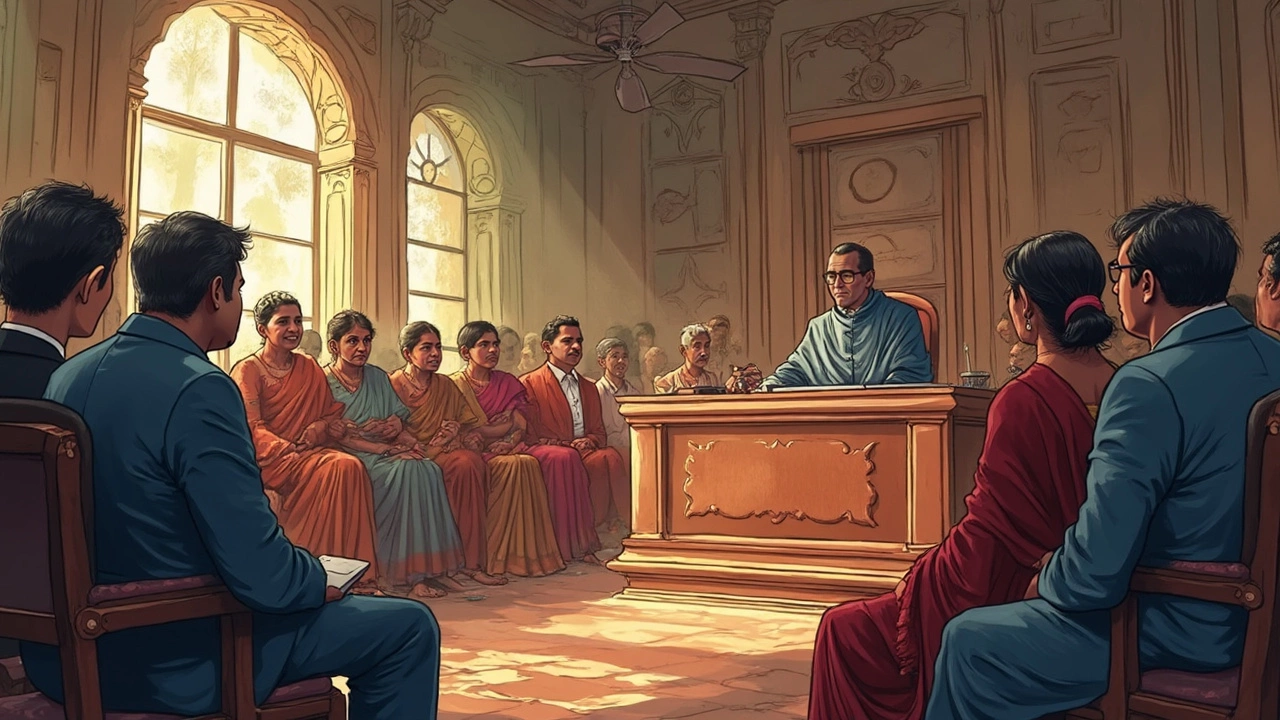Tenant Rights in India – What Every Renter Should Know
If you’re renting a home or office in India, knowing your rights can save you a lot of trouble. From eviction rules to how long a lease lasts, the law gives tenants clear protection, but the details can be confusing. This guide brings the most common questions into plain language so you can act with confidence.
Common Tenant Issues and How the Law Handles Them
Most disputes start with the rental agreement. In many states the standard lease is 11 months to avoid stamp duty, but you can sign longer terms if both parties agree. If the landlord wants you out, they must give a legal notice – usually 30 days for non‑payment, 90 days for other breaches. A notice is not a free pass for the landlord to change the lock; you still have the right to stay until a court order is issued.
Eviction is a court‑driven process. A landlord cannot call the police to force you out unless there is a criminal act, like damage to property or harassment. Even then, the police can only intervene to maintain peace, not to enforce the eviction. The proper route is filing a suit under the Rent Control Act or the relevant state tenancy law, then waiting for a judgment.
What if you refuse to move after a court order? The court can order a police officer to supervise the vacating process, but this only happens after the legal steps are completed. Trying to stay without a court order can lead to fines and possible contempt charges.
How to Protect Your Rights as a Tenant
First, keep a copy of every document – lease, notice, receipts for rent and deposits. These are your evidence if a dispute goes to court. Second, demand a written agreement that spells out notice periods, rent increase limits, and responsibilities for repairs.
If a landlord tries to change the rent arbitrarily, check the Model Tenancy Act and your state’s specific rules. Many states cap annual rent hikes at a reasonable percentage, and any increase must be communicated in writing at least 30 days before it takes effect.
Should you receive a legal notice to vacate, read it carefully. The notice must mention the reason and the exact date you need to leave. If the reason looks shaky – for example, “no reason given” – you can challenge it in the rent tribunal or civil court. Ignoring the notice won’t make it disappear; it only weakens your position.
When the lease ends and isn’t renewed, you’re not automatically evicted. Some landlords assume a tacit renewal, but the law says the tenancy ends on the expiry date unless a new agreement is signed. Give written notice of your intention to stay or move out to avoid surprise claims.
Finally, if you ever feel unsafe or harassed, you can approach the local police for protection, not eviction. They can intervene if the landlord threatens you or breaches peace, but the eviction process will still need a court order.
Knowing these basics helps you handle rental issues without unnecessary stress. Keep records, read every notice, and don’t hesitate to seek legal advice if something feels off. Your tenancy rights are there to keep the renting experience fair for both sides.
Legal Notice to Tenant to Vacate in India: What You Need to Know
Wondering how a legal notice to vacate works in India? This article breaks down what exactly a legal notice is, when a landlord can send one, how much time a tenant gets, and what both parties should keep in mind. Get the facts on the right way to handle tenancy disputes. Step-by-step, you'll see how to keep things fair and legal. No jargon, just clear answers for real situations.
New Tenant Rule in India: What Every Renter Needs to Know
India's new tenant rule is changing the way renters and landlords deal with agreements, deposits, and rights. This article breaks down what the updated policies mean for everyday renters. Get tips for signing agreements, handling disputes, and understanding your new protections. Learn about the Model Tenancy Act and how it affects renting in Indian cities and smaller towns. If you're a tenant or landlord, these facts can help you avoid costly mistakes.
Rental Agreement Not Renewed in India: What Actually Happens and How to Handle It
Ever wondered what takes place if a rental agreement isn’t renewed in India? This article lays out exactly what tenants and landlords can expect, the common myths around automatic lease renewal, and real tips for staying protected. Get the facts about notice periods, eviction risks, and what you should do right after your lease expires. Learn about your legal position and how to make smart decisions so you’re not caught off guard. Stay ahead in India’s ever-changing rental scene.
How Long is a Rental Agreement Valid in India?
In India, rental agreements often leave tenants and landlords scratching their heads, especially when it comes to how long they're valid. While the magic number is frequently set at 11 months to avoid stamp duty complications, the truth is quite layered. From nuances in state laws to the rights you hold as a tenant, understanding the duration of your rental agreement could save you a lot of headache. Here's an insightful dive into the lifespan of rental agreements across India and a few tips to make sure you're on the safe side.
Can I Call Police to Evict a Tenant in India?
Evicting a tenant can be a complex process in India, mainly governed by the Rent Control Act or specific state tenancy laws. Direct involvement from police is not typical unless there's a breach of peace or criminal activity. This article explores legal frameworks, tenant rights, and practical advice for landlords considering eviction. Understanding these rules helps ensure a fair and lawful process for all parties involved.
Can a Landlord Force a Tenant to Leave in India?
In India, landlords cannot simply force tenants to leave for any reason. Evictions are governed by rental agreements and tenancy laws specific to each state. Knowing your rights is crucial, as landlords often have to provide valid reasons, such as non-payment of rent or violation of lease terms, before pursuing legal eviction. Awareness of these laws and negotiation skills can help tenants navigate disputes effectively, ensuring fair treatment.
How to Evict a Tenant in India: A Simple Guide
Evicting a tenant in India can be a complex process, entangled with legal and procedural steps. Understanding the reasons for eviction, the legal process, and how to navigate potential challenges is crucial for landlords. This guide provides insights into tenant rights, common reasons for eviction, and the steps landlords must follow to ensure a smooth process. It's designed to help landlords approach this issue informed, ensuring that they remain compliant with legal requirements.
What Happens If a Tenant Refuses to Move Out in India?
In India, dealing with a tenant who refuses to vacate can be challenging for landlords. Understanding the legal procedures and rights involved is crucial. This article delves into the steps landlords can take when facing tenant refusal, the legal protections tenants have, and how both parties can navigate disputes amicably. It also highlights potential pitfalls and offers practical tips for resolving such issues effectively.
Police Involvement in Tenant Eviction: Know Your Rights in India
In India, the eviction of tenants is a process governed by specific legal frameworks that involve landlord-tenant laws, rights to property, and judicial processes. This article explores whether police can evict tenants and delves into related legislation, tenant rights, and the responsibilities of landlords. Understand the essential steps involved in eviction and what the law says about law enforcement's role in maintaining or breaking landlord-tenant agreements. This comprehensive guide seeks to empower tenants and landlords alike with knowledge about their rights and responsibilities.
Understanding Tenant Ownership Claims in India
This article explores whether a tenant in India can claim ownership of a rental property. It delves into Indian property law, highlighting the rights and responsibilities of tenants and landlords. By examining legal precedents and existing laws, the article aims to clear common misconceptions about tenant rights. It offers practical advice for tenants to protect their interests and avoid pitfalls. Learn how to navigate tenant-landlord relationships with confidence.
Understanding Tenant Eviction Laws in India: Court Orders and Rights
Eviction in India is a nuanced process, governed by various laws that aim to protect both landlords and tenants. Landlords cannot evict tenants without a court order, a process which involves specific legal proceedings. Tenants should be informed about their rights and the detailed procedure of eviction to ensure fair treatment. Various laws in India, such as the Rent Control Act, play a crucial role in tenantlandlord disputes.
How to Legally Evict a Tenant in India: A Comprehensive Guide
Evicting a tenant in India involves navigating complex legal procedures that protect both landlords and tenants. Understanding the eviction grounds, issuing a legal notice, and following court protocols are crucial steps in this process. The article explores these aspects, including the rights of tenants and the role of rent agreements, providing practical tips for landlords considering eviction. It also highlights common challenges faced during evictions and offers advice on how to handle them effectively.











